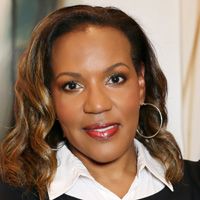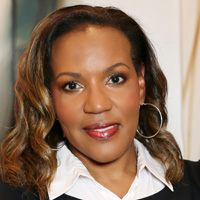5 Critical Steps to Help Women Financially Prepare for Divorce
Take control of your financial life by taking these steps as early as possible in the divorce process. You’ll be glad you did.


Profit and prosper with the best of Kiplinger's advice on investing, taxes, retirement, personal finance and much more. Delivered daily. Enter your email in the box and click Sign Me Up.
You are now subscribed
Your newsletter sign-up was successful
Want to add more newsletters?

Delivered daily
Kiplinger Today
Profit and prosper with the best of Kiplinger's advice on investing, taxes, retirement, personal finance and much more delivered daily. Smart money moves start here.

Sent five days a week
Kiplinger A Step Ahead
Get practical help to make better financial decisions in your everyday life, from spending to savings on top deals.

Delivered daily
Kiplinger Closing Bell
Get today's biggest financial and investing headlines delivered to your inbox every day the U.S. stock market is open.

Sent twice a week
Kiplinger Adviser Intel
Financial pros across the country share best practices and fresh tactics to preserve and grow your wealth.

Delivered weekly
Kiplinger Tax Tips
Trim your federal and state tax bills with practical tax-planning and tax-cutting strategies.

Sent twice a week
Kiplinger Retirement Tips
Your twice-a-week guide to planning and enjoying a financially secure and richly rewarding retirement

Sent bimonthly.
Kiplinger Adviser Angle
Insights for advisers, wealth managers and other financial professionals.

Sent twice a week
Kiplinger Investing Weekly
Your twice-a-week roundup of promising stocks, funds, companies and industries you should consider, ones you should avoid, and why.

Sent weekly for six weeks
Kiplinger Invest for Retirement
Your step-by-step six-part series on how to invest for retirement, from devising a successful strategy to exactly which investments to choose.
As we move through the latter stages of the pandemic, many couples are resuming their plans to end their marriages. These plans were placed on pause during the pandemic, which explains why there was a decline in divorces in the year 2020.
When a heterosexual marriage ends, women still tend to experience the larger drop in income, with women’s household income falling by 41% while men’s fall only 23%, according to research by the U.S. Government Accountability Office. If you have been considering moving forward with a divorce post-pandemic, listed below are five critical steps all women should take to be prepared financially for this stressful transition. As a financial adviser who has also experienced divorce, these steps helped me begin my own transition.
1. Reflect and take action
Take some time to reflect on your situation so that you can move to the acceptance phase of realizing your marriage has ended. During this time, you should research and gather a team of professionals you are going to need, such as a marriage counselor, divorce attorney, financial adviser and tax professional. Having a team of these professionals will empower you to move forward with the next phase of your life. In addition to the above, I also started seeing a therapist, which helped me to mentally face every step of the divorce process.
From just $107.88 $24.99 for Kiplinger Personal Finance
Become a smarter, better informed investor. Subscribe from just $107.88 $24.99, plus get up to 4 Special Issues

Sign up for Kiplinger’s Free Newsletters
Profit and prosper with the best of expert advice on investing, taxes, retirement, personal finance and more - straight to your e-mail.
Profit and prosper with the best of expert advice - straight to your e-mail.
2. Open your own bank accounts
If you don’t already have checking and savings accounts in your own name, now is the time to open them. You should start by having your full paycheck auto deposited into your new accounts. During this time, you could just transfer the funds needed to contribute to the house expenses until the divorce is final. This is the first step of getting into the habit of managing your own finances. I found this step to be critical because I was able to regain control of my finances early-on. The account-opening process can also be time consuming, so it’s best to start as early as you can.
3. Begin building your credit
You may have credit card accounts that are jointly held. Now it is time to build your own credit by getting a credit card in your name. This is also a good time to apply for your FICO credit score from all credit bureaus so that you will know how creditworthy you are when it comes to making those larges purchase, such as buying a home or a car. I am proud to have been able to purchase my own home while still owning a home jointly with my ex-spouse. It was my pay history and credit score that granted the approval.
4. Get frugal
As you may know, attorney’s fees are charged at an hourly rate, which can add up until your divorce is final. Also, the expenses of moving or possibly losing half of your things will require you to start over and repurchase necessary items, such as furniture and kitchen equipment. Going through the divorce process is the time to sock away every spare dime you have. Here are few tips on how to get started:
- Review your personal expenses and separate needs from wants. Perform a detailed inventory of your expenses. You may find that you spend too much on subscriptions or are making too many trips to Starbucks. Doing this may help you find the extra cash you need during this transition.
- Turn your emergency fund into a divorce fund by saving your tax refunds, bonuses or any other discretionary income you may have. Designate a separate bank account for this fund — one without a debit card, so you won’t be tempted to use it. Watching this fund grow can give you the empowerment and motivation to keep going.
- Stop using credit and turn to cash for your regular purchases. A low or zero balance on your credit card may be needed when you begin a life on your own. As mentioned earlier, you will need to be in good credit standing to start your life as a single woman.
- Automate as many of your expenses as you can. My ex-spouse paid the bills, so I never had to think about them. As a single mom, I thought this was a daunting task, especially if bills were due on different dates. I learned that placing your expenses to be paid on autopilot keeps the bills paid on time and gives you more time for yourself with less worry about missing payment deadlines and incurring late fees.
5. Practice independence
During my experience going through a divorce, I created a model cash flow spreadsheet with the details of my income and expenses. For example, I researched and estimated what the total cost would be to rent or purchase a home. Furthermore, I estimated what utilities, groceries, cable, etc. was going to cost while living on my own. This process helped me visualize what my new life would look like, while also empowering me to believe that I can live on my own again. Doing so helped me make sound financial decisions because I knew what my budget limits were.
Going through a divorce can be one of the most stressful and draining experiences of your life. But once it’s behind you, it can also be incredibly freeing. It’s important to prepare yourself mentally and emotionally for a divorce, but preparing yourself financially is critical to your success and well-being. Trust me — your future self will look back and thank you for taking such good care of her.
Profit and prosper with the best of Kiplinger's advice on investing, taxes, retirement, personal finance and much more. Delivered daily. Enter your email in the box and click Sign Me Up.

Renora Nelson is a wealth manager at Merit Financial Advisors, where she helps her clients plan for and enjoy their retirement years. With over 15 years of experience in the financial industry, she has a bachelor's in accounting and has her Series 7, 63, 24, and 65 licenses. Renora has a 16-year-old son and lives in Georgia.
-
 Betting on Super Bowl 2026? New IRS Tax Changes Could Cost You
Betting on Super Bowl 2026? New IRS Tax Changes Could Cost YouTaxable Income When Super Bowl LX hype fades, some fans may be surprised to learn that sports betting tax rules have shifted.
-
 How Much It Costs to Host a Super Bowl Party in 2026
How Much It Costs to Host a Super Bowl Party in 2026Hosting a Super Bowl party in 2026 could cost you. Here's a breakdown of food, drink and entertainment costs — plus ways to save.
-
 3 Reasons to Use a 5-Year CD As You Approach Retirement
3 Reasons to Use a 5-Year CD As You Approach RetirementA five-year CD can help you reach other milestones as you approach retirement.
-
 The 4 Estate Planning Documents Every High-Net-Worth Family Needs (Not Just a Will)
The 4 Estate Planning Documents Every High-Net-Worth Family Needs (Not Just a Will)The key to successful estate planning for HNW families isn't just drafting these four documents, but ensuring they're current and immediately accessible.
-
 Love and Legacy: What Couples Rarely Talk About (But Should)
Love and Legacy: What Couples Rarely Talk About (But Should)Couples who talk openly about finances, including estate planning, are more likely to head into retirement joyfully. How can you get the conversation going?
-
 How to Get the Fair Value for Your Shares When You Are in the Minority Vote on a Sale of Substantially All Corporate Assets
How to Get the Fair Value for Your Shares When You Are in the Minority Vote on a Sale of Substantially All Corporate AssetsWhen a sale of substantially all corporate assets is approved by majority vote, shareholders on the losing side of the vote should understand their rights.
-
 How to Add a Pet Trust to Your Estate Plan: Don't Leave Your Best Friend to Chance
How to Add a Pet Trust to Your Estate Plan: Don't Leave Your Best Friend to ChanceAdding a pet trust to your estate plan can ensure your pets are properly looked after when you're no longer able to care for them. This is how to go about it.
-
 Want to Avoid Leaving Chaos in Your Wake? Don't Leave Behind an Outdated Estate Plan
Want to Avoid Leaving Chaos in Your Wake? Don't Leave Behind an Outdated Estate PlanAn outdated or incomplete estate plan could cause confusion for those handling your affairs at a difficult time. This guide highlights what to update and when.
-
 I'm a Financial Adviser: This Is Why I Became an Advocate for Fee-Only Financial Advice
I'm a Financial Adviser: This Is Why I Became an Advocate for Fee-Only Financial AdviceCan financial advisers who earn commissions on product sales give clients the best advice? For one professional, changing track was the clear choice.
-
 I Met With 100-Plus Advisers to Develop This Road Map for Adopting AI
I Met With 100-Plus Advisers to Develop This Road Map for Adopting AIFor financial advisers eager to embrace AI but unsure where to start, this road map will help you integrate the right tools and safeguards into your work.
-
 The Referral Revolution: How to Grow Your Business With Trust
The Referral Revolution: How to Grow Your Business With TrustYou can attract ideal clients by focusing on value and leveraging your current relationships to create a referral-based practice.